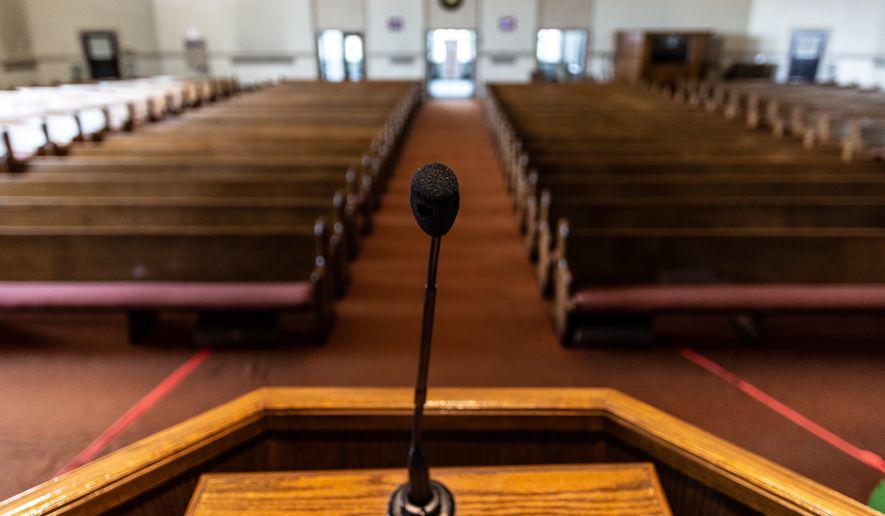The Church of England, the spiritual ancestor of America’s Episcopal Church, revealed Tuesday it would begin this spring a new “project” to consider “gendered language” in its liturgy.
Although it would require legislative action by the church’s General Synod to change the text of prayers or other liturgies from using “God the Father” and Jesus Christ “God the Son” — as are done now in its Litany — to “non-gendered” language, a request for change has come up from the ranks.
The Rev. Joanna Stobart, of the Diocese of Bath and Wells, asked the church’s liturgical commission chair whether that body would “develop more inclusive language in our authorized liturgy and to provide more options for those who wish to use authorized liturgy and speak of God in a non-gendered way.”
Bishop Michael Ipgrave of Lichfield, who also is vice chairman of the panel, said the church has “been exploring the use of gendered language in relation to God for several years,” working with the church’s Faith and Order Commission.
But Bishop Ipgrave added that “changing the wording and number of authorized forms of absolution would require a full Synodical process for approval.”
For centuries, Christians have referred to God and Christ with male terms, and Jesus of Nazareth was a man. That language seemed unlikely to change until recently, when women and transgender individuals asserted their roles in more Christian bodies.
In 2018, Archbishop of Canterbury Justin Welby, the Church of England’s spiritual leader, told a congregation in London that “God is not a father in exactly the same way as a human being is a father. God is not male or female. God is not definable.”
But others have long sought to expand the language used for the Deity, most notably Mary Baker Eddy, founder of Christian Science, who in 1875 interpreted the first words of The Lord’s Prayer as, “Our Father-Mother God, all-harmonious.”
A Church of England spokesman said the discussion about gendered language “is nothing new. Christians have recognized since ancient times that God is neither male nor female.”
The spokesman added, “there has been greater interest in exploring new language since the introduction of our current forms of service in contemporary language more than 20 years ago,” but insisted “there are absolutely no plans” to substantially change or abolish “currently authorized liturgies,” which would require “extensive” Church of England legislation to accomplish.
Although the Episcopal Church is related to the Church of England through common membership in the global Anglican Communion, the American church does not automatically adopt the decisions of the British group.
Spokespersons for both the Episcopal Church headquarters and the Washington National Cathedral, where the Presiding Bishop Michael Curry, is based, did not immediately respond to inquiries from The Washington Times seeking comment.
• Mark A. Kellner can be reached at mkellner@washingtontimes.com.




Please read our comment policy before commenting.